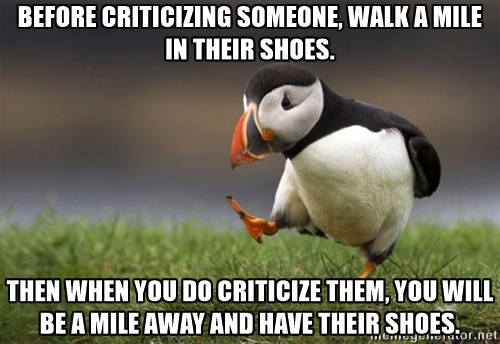The world appears to be in a crisis of leadership. Regardless of circumstances secular or religious, institutions, individuals, and even nation-states worldwide struggle to earmark and support quality persons in positions of leadership. Governments are saddled with corrupt and inept officials. Churches are stewarded either by the obtuse and power-hungry or by avoiders who shrink from responsibility. Presidential candidates in America appear to lack basic skills of moral and personal restraint. While positions of social power already come ready-made with a host of dangers, added to these dangers Lord Acton’s words continue to ring true, that “power tends to corrupt.” The result is that not only are leaders fundamentally un-skilled in leadership, but access to power in their unskilled state magnifies their inadequacies. It is deeply troubling to acknowledge that, more often than not, individuals in effective positions of leadership lack some of the essential characteristics requisite for good leadership.

I’ve been privileged in my work to spend a good deal of time reflecting on the nature of leadership, and while my reflections are birthed from the world of the Church, I believe they apply in a more global sense as well. So without further ado, here are my four essentials for leadership, paired with four tips for growing in each of these four areas.
1. Knowledge of Self. This is the single most important—and possibly most overlooked—characteristic required from any leader. The individual who knows himself knows his strengths, weaknesses, embodied life (mental and physical), and anxieties. To know your strengths is to know those areas where you can trust in your abilities, it is to possess an accounting of the assets you bring to your position. But knowing strengths means you must also know your weaknesses, to be aware of the limits of your capacities, and to know when to call in assistance. This means acknowledging that other people bring strengths which are different from yours. The individual with self-knowledge will also be aware of the impact of his or her embodied life on the work. The unaware person lives out a kind of unhealthy self-denial—unacknowledged exhaustion, hunger, burnout, depression, illness, and life changes become factors worked out at the expense of the people in the institution. In this, unacknowledged personal liabilities tend to become institutional liabilities. By contrast, the bodily self-aware individual will rest well, exercise well, recover well, exhibit boundaries in work and personal life, and make allowances for sickness and life changes. Finally, the self-aware leader will manage her anxiety well. Anxiety is the extension of worry into situations of personal powerlessness. Consumed with his or her own worries, the anxious person seeks to fix problems or to change people, not for the benefit of the organization, but to relieve his or her personal experience of tension. Feeling anxious about a job review, such a leader will project her anxiety on her coworkers. Anxious in the face of tension, a leader will create tension in his whole staff. For each of these four factors, power given to an individual without self-knowledge is a recipe for the wounding of the organization: He will not know his strengths; she will not know her weaknesses; he will not know how his embodied life shapes his perceptions; she will be unaware of how her anxieties impact the organization. Unaware of self, such an individual will in turn project these weaknesses, anxieties, and bodily changes onto the organization. Blind to the self, such individual naturally conclude that the problems are generated by others.

Buy it on Etsy from Storybook Artifact and increase your self-knowledge!
Tip #1: Journaling. Journaling is probably the single greatest tool for growing in self knowledge. So buy a notebook and take a little time each week to reflect back on the week. What were the highlights? What were the low points? What was going on with your body? What did you do well? What did you feel? Don’t make it belabored, but take 15-30 minutes each week to write out some reflections on the past week, and see how your knowledge of self grows in the process.
2. Knowledge of Others. The person who knows only herself and not others is self-absorbed—her capacity to encourage, embolden, and galvanize a group of people will be severely curtailed. Because of this the knowledge of others is a second essential skill in the life any leader. At the most basic level, knowledge of others means possessing an outlook on life that is open to input from other people. Knowledge of self without knowledge of others is a closed system; I take myself as the measure of all things and project my own understanding upon everyone around me. Situations that don’t fit within my own small perception read as incomprehensible to me; I am the measure of all things, and the result is a remarkably small world. By contrast, knowledge of others demands the capacity to read (among other things) the strengths, weaknesses, embodied life, and anxieties of your coworkers, and to take that data in and seek to shape it in a way that strengthens the operation of the organization. Simple data acknowledgement and collection is the rudimentary level of the knowledge of others—the mature leader will strive to empathize with the people he leads. Empathy is an imaginative engagement with the perspectives that others bring to the table—it is the effort a person makes to understand a situation as the other person understands it. Patrick Lencioni in his book The Five Dysfunctions of a Team observes that people will go along with something, even if it’s something they disagree with, so long as they feel that their concerns have been heard and acknowledged. Only an empathetic leader, robust in his knowledge of others, can truly extend such understanding to the people within his organization.

Tip #2: Read a Novel or a Biography. If you struggle to get into the heads of other people, there’s no better place to practice than in reading a novel or a biography. Novels can provide us with great insight into our own emotional lives by helping us to empathize through the eyes of the novelist. Biographies help us to see how other people have handled other difficult situations and surmounted them. Set aside some time each day to read for 15 minutes. You’ll cover a surprising amount of ground and be greatly enriched in the process!
3. The Capacity to Learn from Your Mistakes. In this leadership essential we come against a widespread cultural misperception—namely, the idea that mistakes are always and in every way unwelcome. Institutions often demand perfection—or at least the illusion of perfection—at every level. But in time such unacknowledged errors become buried and then quietly embedded into the DNA of an organization. Pretense develops and people (especially leaders) who continue as humans to make mistakes labor to present themselves as perfect, and to do this they look to pass the buck of blame on to others. The result is that the lesson most learned is not one of being perfect so much as it is of not getting caught. Additionally, people who make mistakes are also people who are willing to take risks. A mistake-free institution is also likely to be a risk avoiding institution. There is no question that wise and well-functioning institutions work to limit moral and institutional errors, but an institution which ignores the human factor will cripple itself. After all, the most stable and long-lasting growth comes not from unchecked success, but from surmounting obstacles, and to do this institutions require leadership that can make mistakes, own up them, and grow through and by means of them. This is why institutions require individuals who have the capacity to learn from the mistakes they’ve made. For the leader, this is an attitude of humility, a recognition that even at his or her best he may not always be right. This is in turn combined with his knowledge of self and of others, and with these combined tools such a leader will be able to discern the point of error, go back, and correct it accordingly. Furthermore, a leader who can own his or her own mistakes will be better equipped to manage the mistakes of others, helping the institution to grow as a whole.

Tip #3: Feedback. Solicit feedback from people working under you about areas where you can improve, or places where you might have made a mistake. Add that feedback to your journal and reflect on the experience, imagining how you can grow through that mistake.
4. Skills Commensurate with Your Field. This is the final essential factor required for leadership, and it should be obvious, but often is not. To lead well in a given field you will require the skills necessary for that employment. To lead as clergy I require, among other things, knowledge of the Scriptures and knowledge of the human heart. To lead as a business owner I require knowledge of the product, the market, and production. To lead in a financial capacity I require understanding of mathematics and administration. No amount of self-knowledge and knowledge of others will surmount the difficulties in leadership if I am fundamentally incompetent in the field in which I am working. Unfortunately, institutions are often not very good at communicating what, precisely, are the skills required for a position of leadership. The best source of information then is to speak to other individuals in similar fields.

Tip #4: Pro-D. Want to succeed in your career? Take a class. Read a book. Attend a seminar. Take other similar professionals out to lunch and pick their brains for how they work. Do whatever you can to round out your skill-set. Don’t be afraid to cross-pollinate as well. If you’re in business, read a book on social relationships. If you’re clergy, read a book on science. If you’re in administration, read a book on art. Surprising benefits can come from attention given to sources outside your specific field!
It ought to go without saying that all four essentials are, well, essential. But you don’t have to be active in a position of leadership to begin developing them. So whether you are in a position of leadership, or considering one, I encourage you to begin the process of self-development even now. Your life will be enriched, and very likely the lives of people around you as well.